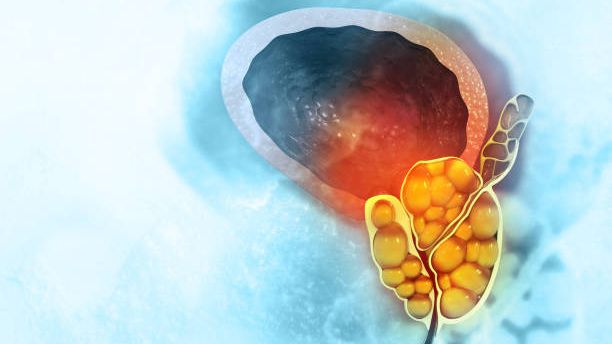
1. The Psychological Impact of Gallstones
The diagnosis of gallstones can trigger a variety of emotional responses. For many people, the experience of living with gallstones can be frustrating, stressful, and, at times, debilitating. The symptoms, which may include sharp abdominal pain (biliary colic), nausea, vomiting, and digestive issues, can significantly impact daily life. These factors can lead to various psychological effects such as:
A. Anxiety and Worry
- The uncertainty of when symptoms might strike, or when surgery might be necessary, can cause significant anxiety. Fear of complications during surgery or concerns about the possibility of gallstones recurring can also contribute to chronic worry.
B. Depression
- Chronic pain and the limitations imposed by gallstones can contribute to feelings of sadness and helplessness. Individuals may experience a sense of loss due to the changes in their lifestyle and routine, particularly if they have to make dietary adjustments or avoid certain activities.
C. Stress and Frustration
- Managing the symptoms of gallstones and dealing with medical appointments, tests, or treatments can be stressful. Those with recurring pain or the potential for surgery may experience high levels of frustration and stress.
D. Body Image and Self-Esteem Issues
- For some individuals, the thought of undergoing surgery or changes in their physical appearance may lead to concerns about body image and self-esteem, particularly if they are dealing with weight gain or digestive changes post-surgery.
2. The Importance of Psychological Support
Psychological support for individuals diagnosed with gallstones is essential for several reasons:
A. Improving Coping Mechanisms

- Proper psychological support helps patients develop healthy coping strategies to manage the stress and anxiety associated with their condition. By teaching patients how to manage their emotions and stress, healthcare professionals can help them build resilience and reduce emotional distress.
B. Enhancing Quality of Life
- Addressing the emotional aspects of living with gallstones can improve the overall quality of life. Reducing anxiety and depression can lead to better physical health outcomes, as individuals are more likely to engage in positive lifestyle changes, attend medical appointments, and follow prescribed treatments.
C. Promoting Adherence to Treatment
- Psychological support can improve patient adherence to prescribed treatment regimens. When individuals feel supported emotionally, they may be more likely to follow their doctor’s recommendations, whether for diet modifications, medications, or preparing for surgery.
D. Addressing Pre-Surgical Anxiety
- For those facing surgery, psychological support can help reduce pre-surgical anxiety. Supportive therapies, such as cognitive-behavioral therapy (CBT), can help patients manage fear of the procedure, the risk of complications, and the recovery process.
3. Types of Psychological Support for Gallstone Patients
Effective psychological support for individuals with gallstones involves a multifaceted approach, tailored to each individual’s needs. Some of the most common forms of support include:
A. Cognitive-Behavioral Therapy (CBT)

- What It Is: CBT is a structured, time-limited psychotherapy that helps individuals identify and change negative thought patterns and behaviors that contribute to anxiety and depression. It is especially effective in helping individuals manage stress and learn better coping mechanisms.
- How It Helps: CBT can teach patients how to manage chronic pain and anxiety related to their gallstones, reduce negative thinking patterns, and improve problem-solving abilities. Patients can also learn how to reframe their fear and anxiety about surgery and recovery.
B. Relaxation Techniques and Mindfulness
- What It Is: Techniques such as deep breathing, progressive muscle relaxation, and mindfulness meditation can help individuals manage stress and anxiety. These techniques focus on reducing the body’s physical response to stress.
- How It Helps: Relaxation techniques help calm the nervous system, reduce heart rate, and alleviate physical symptoms of stress, such as tension or shallow breathing. Mindfulness helps individuals stay present in the moment, reducing rumination and anxiety about future events, such as surgery or pain episodes.
C. Support Groups
- What It Is: Joining a support group for individuals with gallstones or other chronic health conditions provides a platform for patients to connect with others who are experiencing similar challenges. These groups can be in person or online.
- How It Helps: Support groups offer a sense of community and shared experience, helping individuals feel less isolated. Participants can exchange coping strategies, provide emotional support, and share personal experiences related to diagnosis, treatment, and recovery.
D. Psychoeducation
- What It Is: Psychoeducation involves educating individuals about the psychological and emotional aspects of living with a chronic condition. This can be done through one-on-one counseling, group workshops, or informational resources.
- How It Helps: By educating individuals about the emotional impact of gallstones, healthcare providers can help patients better understand their feelings of anxiety, depression, and stress. Knowledge about the psychological impact of the condition can reduce stigma and empower individuals to seek help when needed.
E. Stress Management Counseling
- What It Is: Stress management counseling focuses on helping individuals identify sources of stress and develop strategies to cope with it. This can include time management, setting boundaries, and learning how to relax.
- How It Helps: Learning effective stress management strategies can reduce the overall psychological burden that gallstone patients experience. Proper time management and relaxation techniques can help individuals balance their health challenges with their everyday responsibilities.
4. Healthcare Provider’s Role in Psychological Support
Healthcare providers, including primary care physicians, gastroenterologists, surgeons, and dietitians, play a vital role in identifying and addressing the psychological needs of gallstone patients. Their responsibilities include:
- Screening for Psychological Distress: It’s essential for healthcare providers to screen for anxiety, depression, or other mental health conditions during routine visits. This ensures early identification of psychological issues that may affect recovery and treatment adherence.
- Referral to Mental Health Professionals: Providers should refer patients to psychologists, counselors, or therapists who specialize in chronic illness support when appropriate. A collaborative approach between healthcare providers and mental health professionals can improve patient outcomes.
- Offering Supportive Resources: Providing educational materials about gallstones, their treatment options, and the potential psychological effects can help patients feel more in control and informed. It’s also helpful to give patients access to support groups, stress management tools, and relaxation techniques.
5. Challenges in Providing Psychological Support
There are several challenges that healthcare providers may face when offering psychological support to individuals with gallstones:
- Stigma and Mental Health: Some individuals may feel ashamed or reluctant to seek psychological support due to stigma surrounding mental health. Educating patients about the importance of emotional well-being is essential to overcoming this barrier.
- Access to Resources: Access to mental health services, such as therapy or counseling, may be limited for some individuals due to geographical or financial constraints. Offering alternative support, such as online counseling or group therapy, can help address this issue.
- Individual Differences: Not all patients will respond to psychological interventions in the same way. Personalized care, based on the individual’s specific needs and preferences, is key to effective psychological support.
Providing psychological support to individuals diagnosed with gallstones is an essential component of their overall care. From anxiety and depression to stress and body image concerns, the emotional and psychological challenges associated with gallstones can significantly impact a patient’s well-being. By offering a range of psychological interventions, including cognitive-behavioral therapy, relaxation techniques, and support groups, healthcare professionals can help patients navigate the challenges of living with gallstones and improve their overall quality of life. In doing so, patients can develop effective coping strategies, adhere to treatment plans, and feel empowered to manage their condition with confidence.





